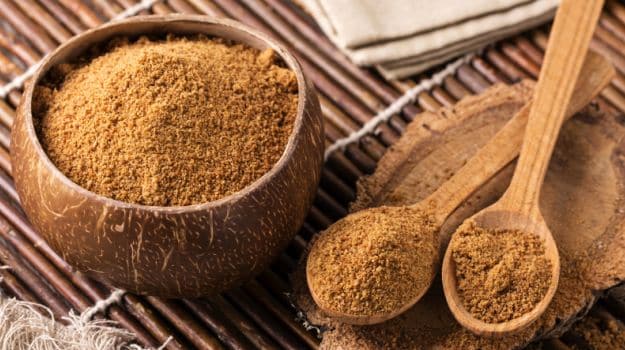Consuming too much sugar can increase your risk of developing diabetes. In addition, excess sugar consumption can also increase risk factors for heart disease such as obesity, high blood pressure, and inflammation. To avoid all of that, you can replace the consumption of refined sugar with natural sweeteners.
Natural sweeteners are not difficult to find, and they are certainly healthier than refined sugar.
What are natural sweeteners?
Natural sweeteners are carbohydrates obtained from vegetables, trees, seeds, roots, and nuts. The commonly used natural sweeteners are honey, molasses, maple syrup, palm sugar, agave nectar, date sugar, and xylitol. Artificial sweeteners comprise carbohydrate substitutes that replace natural sweeteners in beverages and food due to their very low or no energy value and cost-effective availability with higher sweetening value than natural sweeteners.
Best natural sweeteners
Natural sweeteners have received much interest due to increasing health concerns over the consumption of sugar as well as problems related to the safety of some non-nutritive artificial sweeteners.
If you are starting to want to replace granulated sugar with natural sweeteners, try these 5 natural sweeteners:
1.Honey
Honey is one of the best natural sweeteners. The sweet taste in honey is produced from the flower nectar that is taken by the bees.
Since ancient times, honey has been used as a natural sweetener due to its high fructose content. Honey is known to be 25 percent sweeter than sugar. Apart from that, honey also contains protein, carbohydrates, vitamins, minerals, amino acids and organic acids.
It’s also said that consuming local honey can help build up your immunity to common allergens in your area by introducing your body to the bee pollen from local bees. If you can’t find local that’s ok, just look for raw.
You can use it as a natural sweetener by adding honey to tea, coffee, cereal, yogurt, and salads.
Way to use honey as a natural sweetener:
- Use 1/2 teaspoon to sweeten coffee or tea
- Take 1/2 teaspoon raw, local honey or Manuka honey for its health benefits
- Drizzle on homemade coconut yogurt or Greek yogurt if you tolerate dairy
- Try it in just about any recipe that needs sweetness
2. Maple syrup
Maple syrup is another natural sweetener that you can choose from. It is a thick liquid made by boiling the sap collected from maple sugar. Maple syrup contains sucrose, oligosaccharides, polysaccharides, organic acids, amino acids, vitamins, and minerals.
Apart from that, maple syrup also contains many phytochemicals, including phenolic compounds which exhibit antioxidant, antimutagenic, anticancer, anti-inflammatory, antibiotic, hypoglycemic, and anti-neurodegenerative effects.
You can add maple syrup to sweet and savory foods, such as oatmeal, pancakes, vegetables, chicken, coffee, tea, and cookie dough.
3. Dates
Dates have a sweet taste similar to caramel. This natural sweetener contains excellent nutrients such as vitamin C, vitamin B complex, selenium, potassium, and magnesium.
Dates also contain dietary fiber, especially insoluble fiber, antioxidants, sugars especially fructose and glucose and low in fat and protein.
4. Palm sugar
Palm sugar is a natural sweetener made from palm tree sap or coconut tree sap. The manufacture of palm sugar is natural so that nutrition is maintained. Palm sugar is made by extracting it from palm sap which is heated until it is free of bacteria and germs. The color produced from palm sugar is a natural color, no more dyes.
Per 100 grams, palm sugar contains 368 calories, 95 grams of carbohydrates. Because it is processed naturally, the mineral content of palm sugar is not lost, such as zinc, phosphorus, potassium, calcium, magnesium, iron, manganese, copper and vitamins such as vitamins B8, B2, B1. The glycemic index of palm sugar is at 35. This is low.
Are you interested in trying palm sugar as a natural sweetener? Try one of our best palm sugar.
